Writing is not for photographers.
This is the most ridiculous statement I have ever heard, and as a photographer, I have heard many. Do you know what is even more absurd about this declaration? For a long time, I am the one who swore by it. This was following the demise of my first personal photoblog. You can say the ludicrous statement was my way of consoling my sorry self.
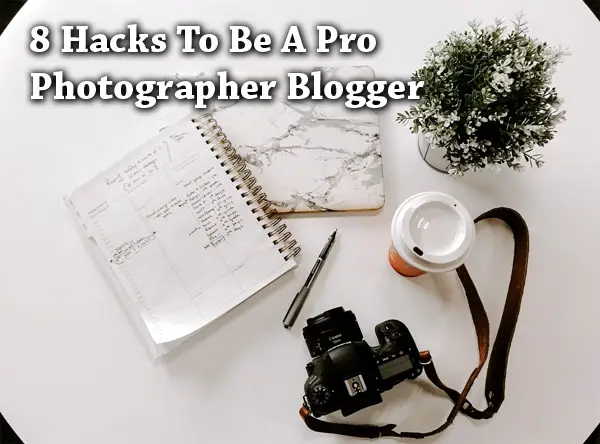
Today, like the biblical Saul I have since “seen the light”. I now know that blogging is essential for every photographer. Especially so if you want to grow your photography business.
This article is about all the secrets am using in my journey towards becoming an expert photography blogger. Here you will learn 8 amazing hacks to be a pro photographer blogger and grow your photography business.
Before we get deeper into it, allow me to indulge you with my blogging background story.
Blogging Mistakes I Made as A Beginner
See, I began my blog by chance. It was part of an assignment in one of the Information and Technology courses. This was back in college, and boy was I excited.
Our lecturer tasked us to start a blog around our passion. This was in my final years of college at a time I was deep into exploring my photography passion. Talk about perfect timing.
I got right in to create my photoblog and named it Art & Photography Work by Me. I blogged about anything and everything. It became an outlet to share my passion for photography.
I themed most of my posts around my photos. From the stats and feedback, I could tell my readers loved my content.
I wrote about the shooting techniques I was practicing. Gave my experiences with gear. I even shared my achievements including a successful photo exhibition I held. This exhibition was part of my final project at Journalism School.
I was born for this, I told myself.
A few months down the line and my excitement simmered down. In the beginning, I would come up with two or three creative posts per week without breaking a sweat. Now it was a struggle mastering even a single post per month.
I didn’t have any answers. The inconsistency was appalling and the audiences I had acquired soon lost interest. My blog, my high flying photoblog had nosedived.
This was a tough lesson for a young and ignorant photographer to take in. Looking back, it is one that I needed at the time. It is this experience that led to my opening statement.
From then on I was a strong believer that as a photographer I should focus (pun intended) on what I am good at.
Why bother writing about photography when a photo is worth a thousand words? I asked. I even told myself blogging is only for pro writers, right? Wrong.
Lessons Learnt from First Time of Blogging
That experience taught me vital lessons. For starters, I didn’t have a clue why I wanted to blog other than to complete a course assignment.
This meant that my blogging automobile lacked direction. When the wheels finally came off, I didn’t have any solution.
I also underestimated the hard work that goes into blogging. I soon realized (to my detriment) that quality stories don’t write themselves. This was a loud wakeup call.
I learned that blogging required the same, if not more effort than I was putting into my photography.
I had set myself for failure from the get-go by not researching and using the right blogging tools. Failure to seek advice from those who had perfected the art of blogging was also a recipe for disaster.
I have since learned my lessons and even gained more knowledge of blogging and writing. I did this working as a photojournalist for a monthly print media publication. My work involved lots of writing and photography assignments.
It is here that I enhanced my writing skills. I also appreciated how photography and writing are a perfect recipe for success.
After five years I resigned to start my photography business. My photography company specializes in interior, architecture, and real estate photography.
The company is now two years old. I am always looking for ways to grow and improve my young photography business. This is how the idea of blogging and its importance to growing a business crossed my mind.
Importance of Blogging to Your Business
Blogging has to be one of the most effective ways to grow a photography business. This is important to both an amateur or a professional photographer.
According to optinmonster.com, 77% of internet users read blogs. Also, businesses that blog experience more email traffic compared to those who don’t.
As a photographer, blogging is the best platform to share your photos and mind-set with the world.
I want to use the experience and skills I have acquired over the years to blog about photography. Especially the business side of it. This will be a way to improve my knowledge and grow my photography business as a result. It is in sharing that I will gain.
If you share in my story (of having a failed blog collecting dust somewhere) or you are an amateur or professional photographer wanting to become a blogger. Or you are only here for an interesting read. This post is for you.
Let me now go into the 8 tricks to be a successful photography blogger that I have learned over the years. Disclaimer, I am also using these hacks myself, so follow them at your own risk.
Now let’s get right to it.

1. Deciding On a Blogging Niche
The first thing I have done is deciding my niche. There are many ways of choosing a niche. In my situation, I used the following two ways.
Based on Area of Expertise
This is deciding on my niche based on my know how or whatever it is I am very good at.
Based on Area of Interest
This is picking a niche in an area that I am curious about and seeking to understand better.
I used a combination of the two methods. This helped me decide on photography as my niche. The other was photography business as an area I am seeking to understand better.
I am seeking to go deeper than the obvious in the general niche of my choice. This is not to say that I don’t have other interests. I do and they include; technology, agribusiness, and finance.
I am sure having a niche will enable me to understand photography better. It will also help me to build trust with my audience.
2. Creating A Practical Blogging Plan
When it comes to blogging failing to plan is planning to fail – take it from the horse’s mouth. A practical work plan is vital to the success of any blogging career. To help me with my planning, I resorted to blogging as I shoot. What do I mean?

I approach blogging like I would any of my photography assignments – with a solid strategy. A proper plan will allow you to balance your busy shoot schedule with your blogging schedule.
For my photography work, I use a shot list. For blogging an editorial calendar or content strategy spreadsheet comes in handy.
A content strategy spreadsheet enables me to come up with themes for each blog post. It also helps me decide the frequency of posting. Whether I want to post twice or once per week depends on my schedule.
After planning the work, it is time to work the plan. These following tips will explain how.
3. Sharing Experiences and Interests
Generating photography blog ideas can be an overwhelming task. This is especially so if you are new to blogging.
Here is a tip that has so far worked for me. Write about your passion, and your interests.
In whatever theme I am blogging about. I find it easier to share my own experiences. As opposed to blogging about somebody else’s experiences.
This allows me to tell my story without restrictions. It also a way to create an honest connection with my reader. It is a good confidence booster that lets me convey my message without feeling like a fraud. This is very significant when growing a brand.
To give more value to the reader I also write about my interests. This requires I research and learn something new to share. At the end of the day, it’s a win-win situation for me and the reader.
Remember it is by sharing that you learn. Here is a list of themes that you can share by giving your own experiences.
- Shooting techniques
- Editing tips
- Experiences with clients
- Work Adventure
- Challenges
- Business tips
Now that you are bubbling with ideas, you need to decide on your target audience.
4. Blogging for Yourself
As I mentioned earlier, I am sharing my experiences and interest as a photographer. This as a result means, I am the primary audience of my blogging.
I am also writing for fellow photogs. While as photographers we share common interests, blogging for my colleagues can be challenging compared to blogging for self.
There are many avenues to get information on what photographers find interesting. The biggest resource centres are photography forums.
It is in these forums where amateurs and pro photographers alike hang out. It is also here that they share the freshest ideas in the industry.
Here photographers share their experiences, ask questions, and offer each other solutions.
So join as many photography forums as you can. Research solutions to queries in the forums. This will generate great content for your blog posts.
5. Learning from The Pros
Getting into the interior, real-estate and architectural photography was a new world to me. Everything appeared strange to me. That was despite my photography background,
I found my way around this new world through the help of the pros in the industry. I did this by attending the prestigious YouTube University. I watched lots of tutorials from the best in the industry and applied what I learned.
That is how I learned techniques like “Window Pull” from Rich Baum. Here he is on the subject of Window Pull technique for beginners:
I also learned “Flambient” from Nathan Cool. “Light Painting” from Mike Kelly. “Day to Dusk” twilight conversion from Andrew Pece’ to mention a few. These lessons have improved my skill set as an interior, real estate, and architectural photographer.
I am using the same approach to learn from pro blogger photographers such as Jasmin Star. The internationally-renowned wedding photographer offers great insights on blogging applicable to all photography genres. Her 3-and-3 Blogging Rule is a great tip for photography bloggers.
I am also a huge fan of Erick Kim, the king of street photography. He’s a huge contributor to photography blogging, business, and entrepreneurship. He’s one person I learn a lot from and he’s a huge advocate of writing what you want to learn.
In the learning process, you don’t have to stick to photography experts. I have learned about writing engaging intros from John Marrow.
I have learned keyword research and SEO techniques from Brian Dean and Neil Patel. Elna Cain also offers great tips for newbies such as best blogging tools for beginners.
Speaking of blogging tools…
6. Using Best Blogging Tools
Blogging is lots of fun but requires lots of determination to be successful. If you are in it for the long run it requires lots of resilience.
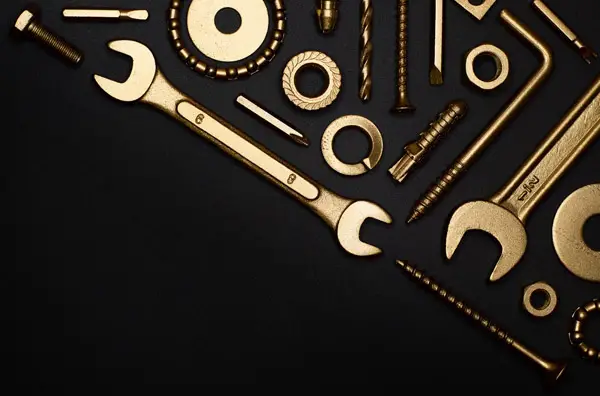
The good news is there are many tools to make blogging worthwhile.
a. Keyword Research Tools
This is one of the most important tools for bloggers. It helps you with Search Engine Optimization or SEO by helping readers find your content.
Otherwise, what’s the point of writing great copy if nobody is going to read it. Good copy should also be easy to find.
This is usually by use of keywords that readers are searching for. You don’t want to be guessing what readers are searching for instead use keyword tools.
You want keywords with the highest search volumes but the lowest difficulty score.
Ubersuggest is perfect for beginners as it is free. For advanced bloggers KW Finder, SEMrush and Ahrefs would be ideal.
b. Blog Post Ideas and Title Generators
After finding the keywords it is time to come up with catchy titles that will attract readers.
Whatever content you are writing. An attractive title is what will make readers choose your content over others. Tools like Headline Generator and Blog Topic Generator are very helpful.
After coming up with a great title for your blog post, it needs to be powerful and write length to attract traffic. For this, I use Headline Analyzer to make sure my title is easy to digest and the right length.
c. Grammar and Proof Reading
I blog how I speak and that sometimes leads to grammatical errors that aren’t easy to spot. Spending many hours on the same blog post breeds familiarity. This makes the work of editing the blog post even harder.
In an ideal situation hiring an editor would be the best bet. The other cost-effective way of going about it is using online editing tools. I use Hemingway Editor and Grammarly to check for correct spelling and ensure my writing is easy to read.
7. Concentrating On Content
My main focus of blogging is sharing content. I will be doing this in the available publishing avenues possible. It is my multifaceted approach to blogging.
This way I will not limit how I blog.
One of the ways is by setting up a blog that I encourage and am currently doing. I am also building my reputation (read confidence) writing guest posts, ghost-writing.
I will also be sharing content on portfolio pages such as Quietly, Contently, and Medium. As well as social media platforms such as Linked-in and Twitter and Facebook.
This will go a long way to grow my confidence as a blogger and photography business.
The more I get my thoughts published the more I will want to continue writing. It will be a renewable contract between me and my readers.
Blogging and doing photography needs a lot of dedication. Where will I get all the extra time to blog?
8. Developing Discipline to Blog
At the end of the day, for you to be a photographer blogger, you will have to sit in front of a computer and write.

I will admit that writing as a photographer is quite a challenge. As a photographer, I am used to creating a near-perfect environment when shooting. Things don’t work out that way in the blogging world. Photography is an art. Blogging is not – it’s a habit.
Do not insist on perfectionism and making everything artsy during the writing process. Doing this will kill your blogging career before it even starts.
I have learned to embrace pouring out my words (with all the imperfections) first. It is later during editing that I add all the bells and whistles. Even so, I don’t like editing myself too much.
Here are a few tips to help you develop that discipline as a blogger photographer.
Blog Only When You Feel Like it
The worst thing you can do is force yourself to write, especially if your body and mind are against it. When I try to do this my mind usually registers this is as a punishment and it gets get harder to write each time.
Writing when relaxed and with short breaks between sessions is way more fulfilling. Try and approach writing like you would physical exercise.
This next point explains how.
Start Small and Make It a Habit
Start with baby steps. Commit to writing say a page or 250 words per day for the first week. The following week you can up your game to the same number of words per hour.
Increase your word count per hour to say 500 per hour. If you intend to be a regular blogger aim to writing 1000 words per hour. I am currently at 800 words per hour.
You don’t have to be exact and hit the exact word count each time. The important thing is building a pattern and forming a writing habit that will make it easy for you to write.
This will help you avoid the situation of having 7 posts in a week and none in the next three months.
Reading Will Improve Your Blogging
I learned from my journalism days, that reading a lot improves your writing. I also learned that when it comes to writing you can only give what you have.
Reading will expose you to new concepts, and vocabulary – you will need many of those in your blogging).
So read whatever material that comes your way; books, magazines, and other blogs. While at it remember to jot down interesting concepts. To develop your writing discipline, make blogging part of your daily workflow and make it a habit.
There You Have It!
There you have it! I have shared my hacks for photography blogging. Feel free to join me on this journey by put them to practice. Better yet, share other useful hacks that you are using to improve your blogging skills.
Are you into photography blogging or thinking about starting? I leave you with these words…
Photography is an art. Blogging is not – it’s a habit.
Click on the following link for information on strategies for launching a successful photography blog.

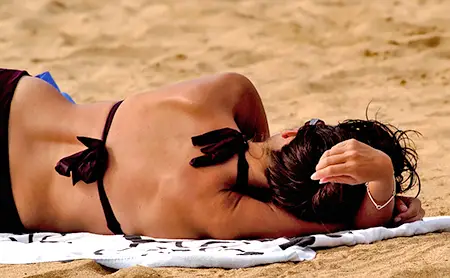
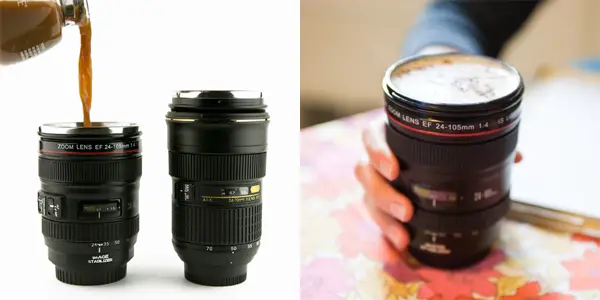
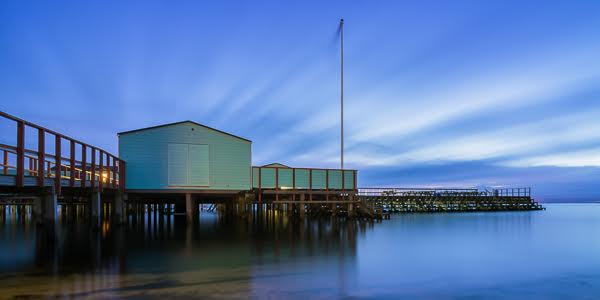
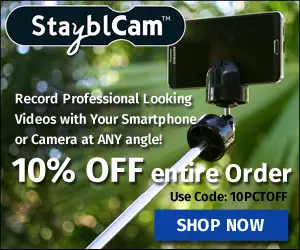



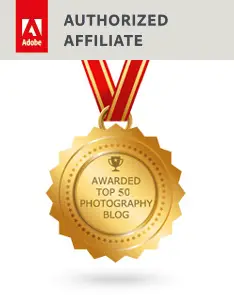
2 comments